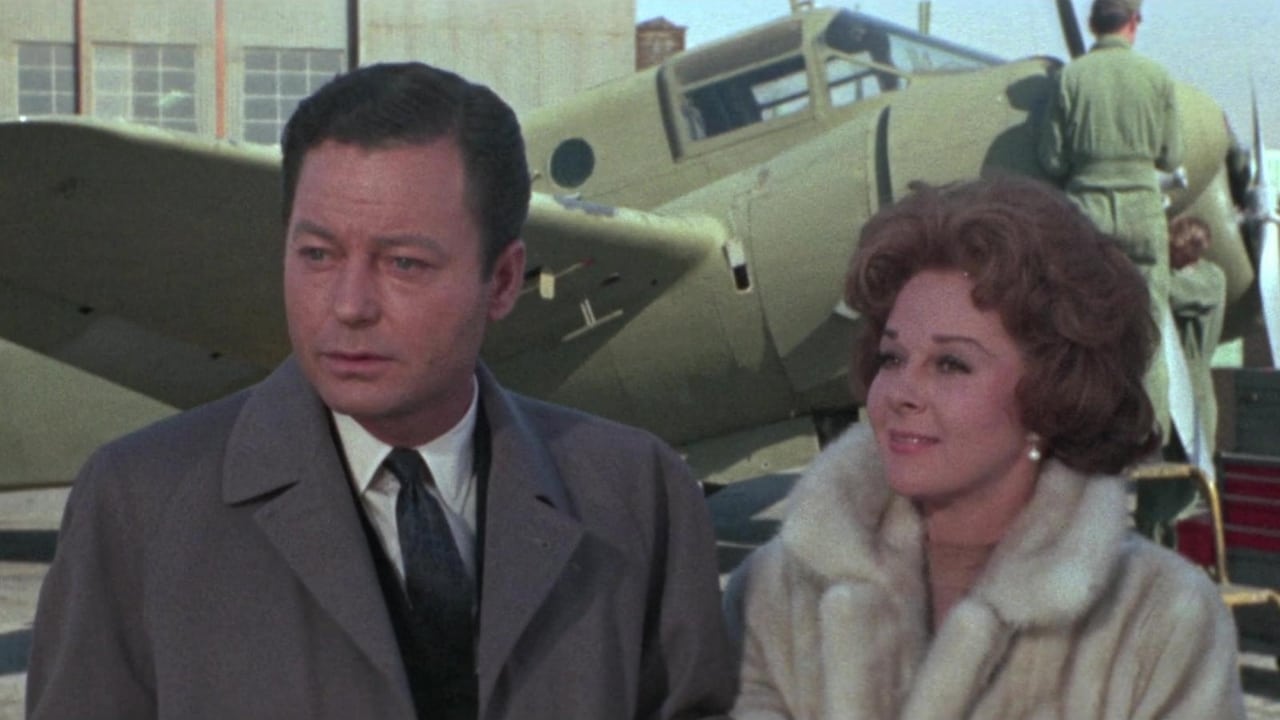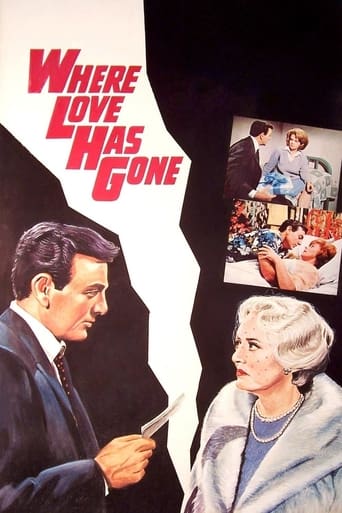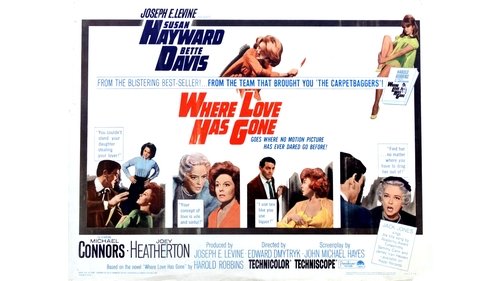ThiefHott
Too much of everything
StyleSk8r
At first rather annoying in its heavy emphasis on reenactments, this movie ultimately proves fascinating, simply because the complicated, highly dramatic tale it tells still almost defies belief.
InformationRap
This is one of the few movies I've ever seen where the whole audience broke into spontaneous, loud applause a third of the way in.
Quiet Muffin
This movie tries so hard to be funny, yet it falls flat every time. Just another example of recycled ideas repackaged with women in an attempt to appeal to a certain audience.
vincentlynch-moonoi
If evaluating a film were a question of a scales with the positives on one side, and the negatives on the other, on the positive sides of the scales you'd have the acting abilities of Susan Hayward and Bette Davis. On the negative side you'd have a potboiler of a script and the performance of the leading man -- Mike Connors, and the teen-aged Joey Heatherton. I was not familiar with this film, and within just a few minutes I thought how much the story reminded me of the true story of Lana Turner's daughter killing her mother's lover...then, after watching the film and reading about, I found out most people at the time assumed the same thing. There are a handful of actors -- Jack Nicholson is another example -- who I can watch and enjoy even in a lousy movie, just because I know their performances are going to be so interesting. Bette Davis and Susan Hayward have always been in that group, for me. So, I suffered through this film, just for the joy of their acting. In their confrontational scenes together, they sizzle! And can't you imagine Davis and Hayward being mother and daughter?
phillindholm
And that's not ALL poor Joey Heatherton's lost, in this lurid melodrama adapted from the Harold Robbins novel. Produced by Schlockmeister Joseph E. Levine (''The Carpetbaggers'') ''Where Love Has Gone is a VERY thinly disguised dramatization of the Lana Turner/Cheryl Crane/Johnny Stompanato case in which he was supposedly stabbed to death by Lana's daughter Cheryl. Here, the central figure is a famous sculptress (Susan Hayward) who resents her domineering mother (Bette Davis) and spends most of her time in the sack with various low-life lovers. Heatherton is her neglected teenage daughter, whose estranged father (Michael Connors) flies to her defense when she is accused of the murder. This leads to a lengthy flashback which shows, in detail, the courtship, marriage and eventual divorce he and Hayward endure.And, back in the present (where no one involved looks a day older, let alone wiser) things get worse, as one sordid revelation after another leads all of this to it's laughably melodramatic conclusion. Davis, who reputedly didn't like the script (or Hayward either, for that matter)and sporting a white wig and very thick eye makeup,reads her lines like an elocution school teacher, while Hayward bellows hers so loudly that people who saw this in a theater could probably hear them in the bathroom.And it's Hayward we have to thank for this exercise in excess, because she insisted the script be filmed as written-refusing any changes. Heatherton, trying (and failing) to look 15 yeas old, does little more than pout her way through her part, while occasionally delivering some howlers: ''Oh, Daddy, what's wrong with me? I love all the wrong people-and I HATE all the right ones!''. Oh Yes, and blaming the loss of her virginity on ''Horseback Riding''?. Connors, a few years away from ''Mannix'' is just there. ''Star Trek's'' DeForest Kelly is around as a sleazy art critic, while Film Noir bad girl Jane Greer (making a comeback after a heart operation)is a reserved, but concerned probation officer.And it's Greer, along with Anne Seymour (''All The King's Men'')as a psychiatrist, who give the best performances.This was pretty Hot Stuff for 1964, though less so these days. Despite the box office success it had, it's largely forgotten now.A new DVD has just been released by Olive Films, And the plush Technicolor production is something to see-remastered for the first time in all it's Widescreen Glory. And in spite of (or ,maybe because of) it's Producer attempt to cash in on what was really a very seamy incident in Hollywood History, the film is very entertaining, and a time capsule from a bygone era.
mrsastor
I'm going to side-step the whole Lana Turner murder plot and just address the big flaming hole in this film.About ten minutes into the film, we flashback about twenty years to approximately 1944, where we remain for at least an hour. No one changes. Not one bit. Everyone looks exactly the same, even wearing the same 1964 costumes and hairstyles. Someone was thoughtful enough to give Luke a 1940s automobile, which he drives down a street full of 1960's cars! (In 1944, there shouldn't be a Corvair parked across the street). Besides the hair and clothes, all the homes are decorated in the same 1964 decor they had prior to the flashback (oh, those AWFUL grays that just ruin Hayward's "studio"...!) It doesn't really matter what redeeming qualities the film might have outside of this, and I didn't really see much, you can't just insult the hell out of your audience with a lousy flashback that is only twenty years earlier because the characters say it is, and expect them to respect the rest of the film. This is really, really bad; the so-called flashback is the worst art and set direction I have ever seen.
moonspinner55
Society sculptress in San Francisco marries a war veteran, a man who quickly turns to the bottle after failing to carve out his own niche away from the realm of his domineering mother-in-law; sometime later, the daughter they share apparently kills mom's lover in a jealous rage. Harold Robbins' best-selling roman à clef lifts its subplot from the real-life Lana Turner-Johnny Stompanato case, and those bits and pieces are rather interesting. However, much of the movie is spent with bickering marrieds Susan Hayward and inert Michael Connors trading barbs, and the promising idea loses its impetus and becomes a stillborn soaper. Connors, heavily made-up and with lacquered black hair that never changes during the story's many years, twitches and twists his mouth into a grimace throughout the entire picture, only coming to life while tipsy in a brief dinner scene. Hayward fares better, but her slurpy, silly lines are pure camp ("You're a kept-man, not a war hero! And a drunk! A drunk! A DRUNK!"). Bette Davis is pretty much wasted as Hayward's mother (who would've thought a film co-starring these two high-powered ladies could be so dull?) and Joey Heatherton scowls continuously as the teenager in trouble (I loved her retort though about how she lost her virginity: "It happened horseback riding!"). Tatty-looking picture has some fun trappings (such as Susan's round bed, Princess telephones, and fashions that often match the room decor), but the plot is lazy and Edward Dmytryk's direction is completely rote. Film opens with picture-postcard shots of San Francisco coupled with a cheesy title tune crooned by Jack Jones, which unbelievably netted an Oscar nomination! *1/2 from ****


